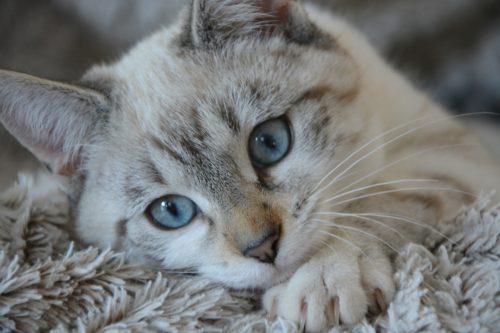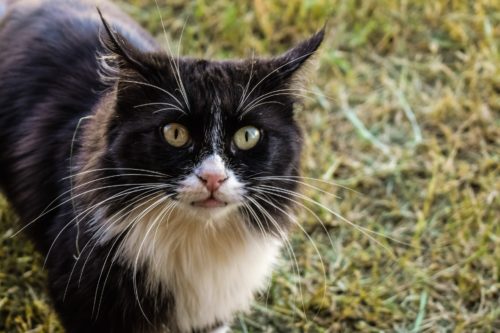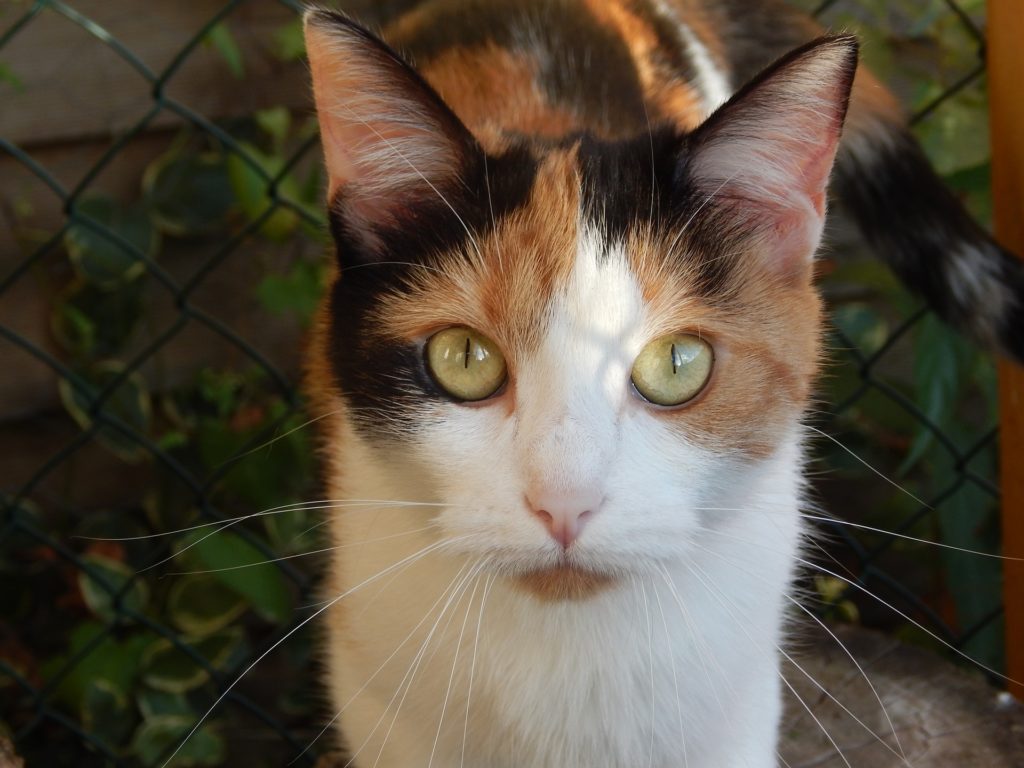IBS. You may know someone who has it, but what about your cat?
Irritable bowel syndrome, or IBS for short, is a sensitivity of the lower bowels. It’s commonly associated with chronic inflammation and discomfort in the animal’s bowels, but it is not linked with gastrointestinal issues.
IBS is often expressed in the frequent urge to defecate, diarrhea or constipation, and cramping. It is often confused with inflammatory bowel disease or IBD. The difference? IBS is a result of psychosomatic (mental) conditions while IBD involves inflammation in the intestines caused by an underlying disease.
Find out more about IBS, which causes pain and discomfort in cats, below. If you suspect your cat has irritable bowel syndrome, it’s important to diagnose it as soon as possible to start a proper treatment plan, so you can ensure quality living long-term.
Symptoms of Irritable Bowel Syndrome in Cats
Symptoms can range in frequency and severity and typically include:
- Frequent passing of small amounts of feces, often accompanied by mucus or blood

- Chronic, intermittent diarrhea
- Constipation or other difficulties defecating
- Abdominal pain
- Changes in appetite
- Nausea and/or vomiting
- Bloating and/or gas
- Weight loss
- Fatigue
Causes of Irritable Bowel Syndrome in Cats
Due to a variety of factors, the exact cause of irritable bowel syndrome in cats is unknown. Leading causes vary from case to case and include:
- Stress related to external factors such as a change in living situation; altered routine; the addition of new pets or children to the home; trauma, or lack of stimulation
- Separation anxiety
- Food intolerance
- Lack of fiber
- Abnormal colon function
- Neural dysfunction
Diagnosing Irritable Bowel Syndrome in Cats
If you observe the aforementioned symptoms in your cat, call your veterinarian. IBS can cause a lot of pain and discomfort in your cat the longer it persists.
Be prepared to give a history of your cat’s health, as well as details surrounding the onset of symptoms. It is also helpful to provide observations about changes in the cat’s personality, thoughts as to possible causes, and any recent changes in the cat’s environment.

The veterinarian will likely perform a physical exam and order a set of lab tests, including:
- A complete blood count (CBC)
- Biochemistry profile
- Urinalysis
- Fecal examination
- Electrolyte panel
In addition, x-rays or ultrasounds may also be used to aid visual diagnosis and intestinal tissue biopsies.
Because the symptoms of IBS are similar to those of other conditions, your veterinarian will want to rule out other underlying causes such as inflammatory bowel disease; food allergies; metabolic diseases; leukemia; or infections.
Treating Irritable Bowel Syndrome in Cats
As there is no single treatment for IBS in cats, the veterinarian will likely prescribe a combination of therapies.
Food Trial
Since IBS can be related to food intolerance, your vet may prescribe a hypoallergenic food trial. He may recommend a novel diet—that is, proteins and carbohydrates your cat has never consumed. Leading novel proteins include duck, venison, and rabbit-based foods.
During this food trial, it’s important to feed your cat these novel foods and nothing else to get to the bottom of the potential allergy. This takes a lot of patience, as it can take several weeks or longer for results to improve.
After this time, if the cat still continues to have IBS, your vet may recommend a different diet.
Medication
If inflammation is bad, your veterinarian may prescribe corticosteroid medication, mainly prednisolone, to treat this symptom. In some cases, antibiotics or immunosuppressive drugs will be prescribed.
In recent years, veterinarians have also seen success using prebiotics and probiotics for treatment. These help support the production and maintenance of “good” bacteria to help gastrointestinal health.
Stress Management
If the cat has been exposed to overwhelming stress, your vet will recommend reducing the stressors. Essential oil diffusers, extra play time, and keeping plenty toys on hand may all be used to help. In extreme cases, the veterinarian may prescribe anti-anxiety medication.
Recovering From Irritable Bowel Syndrome
Although IBS is not usually curable, symptoms can be controlled. Maintaining a healthy diet is necessary, as is reducing any stress in the environment. With the right amount of attention, care, and follow-up appointments, you can help your cat live the happy, healthy life he deserves.




